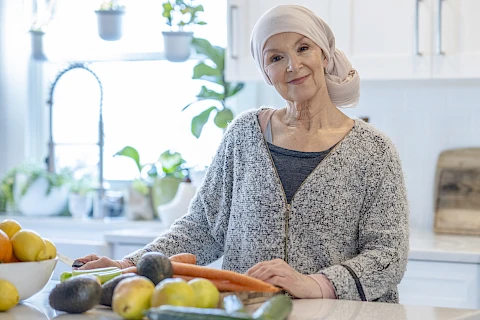
Recovering from a physical injury places unique demands on the body. Proper nutrition supports the rebuilding of muscle, strengthens the immune system, and helps calm inflammation that can slow down the healing process. A balanced diet rich in lean protein, vitamins, minerals, and antioxidants can improve tissue repair and energy levels, while also helping maintain a healthy weight to reduce stress on joints.
For seniors recovering from joint injuries or undergoing surgery, tailoring daily nutrition can make a significant difference in their recovery. Prioritizing foods that supply enough protein for muscle repair, healthy fats to reduce inflammation, and vitamins such as C, D, and zinc to strengthen immunity can all support recovery. Hydration and consistent meal timing further aid in keeping the body fueled for healing.
The Role of Nutrition in Injury Recovery
Recovery after an injury places extra demands on the body, and nutrition provides the foundation for meeting those needs. The foods seniors eat influence how efficiently the body repairs tissues, maintains strength, and helps strengthen immune function. Including balanced meals with protein, healthy fats, fiber-rich fruits and vegetables, and adequate hydration supports energy, digestion, circulation, and tissue repair during recovery.
Essential Nutrients for Recovery
Certain nutrients play well-supported roles in helping the body recover from injury and maintain wellness. Proteins, vitamins, and minerals—such as lean meats, fish, eggs, beans, vitamin C, vitamin D, calcium, and zinc—support muscle repair, tissue healing, and immune resilience. Healthy fats, such as omega-3s, and fiber-rich foods, including whole grains, fruits, and vegetables, help reduce inflammation, ease joint discomfort, and improve nutrient absorption.
Tailoring Nutrition for Seniors
Seniors may have different dietary needs, requiring nutrient-dense foods to get essential vitamins and minerals without excess calories. Eating smaller, more frequent meals and staying well-hydrated—about 8–10 cups of water daily—supports energy, digestion, and overall recovery. Consulting a healthcare provider or registered dietitian can help ensure nutrition choices align with individual health and medication needs.
Practical Tips for Nutritional Improvement
Simple changes in your diet can support recovery and make meal prep easier. Consider easy-to-prepare meals like vegetable and lentil soups, grilled fish with steamed vegetables, or a spinach and quinoa salad—these options are nutrient-rich and simple to make. If your diet does not provide all the necessary nutrients, you can use supplements, but consult a healthcare provider to confirm what’s appropriate. For seniors experiencing reduced appetite, nutrient-dense smoothies or meal-replacement shakes can provide additional vitamins and protein, and adding fruits and greens can boost nutrient intake smoothly.
Safe food handling and storage are also important for recovery. Consuming contaminated or spoiled foods can lead to illness, which may slow healing and compromise immune function. Seniors should store perishable items promptly, wash fruits and vegetables thoroughly, and reheat leftovers to the proper temperature to keep meals safe and supportive of recovery.
Supporting Recovery Through Nutrition and Care
Nutrition is a cornerstone of recovery for seniors healing from physical injuries. Prioritizing a balanced, nutrient-rich diet not only supports healing but also strengthens overall health. Seniors and caregivers can rely on Senior Helpers of Greater Richmond, serving Richmond, Midlothian, Petersburg, and Glen Allen, through our Personal Care services, which include personalized meal planning, grocery shopping, and meal preparation tailored to individual recovery needs. With this support, seniors can focus on healing while maintaining the necessary nutrition to rebuild strength and promote overall wellness. Contact us to learn how their services can help you or your loved one recover more comfortably and stay nourished throughout the healing process.